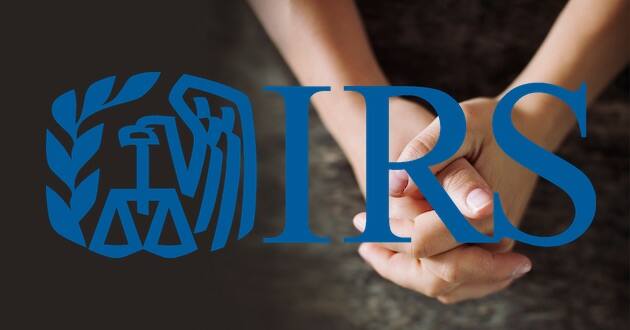In what could be a new crackdown on religious freedom by the Biden administration, the IRS has denied tax-exempt status to a Texas group that encourages church members to pray for state and national leaders. The group is non-partisan and prays for leaders of both parties but an IRS official denied it saying prayer benefits “the private interests of the [Republican] Party.”
“You do not qualify as an organization described in IRS Section 501(c)(3). You engage in prohibited political campaign intervention,” wrote Stephen A. Martin, Director of the IRS Office of Exempt Organizations Rulings and Agreements in a May 18 letter to Christians Engaged,the Garland, Texas-based prayer group recognized by Texas officials as tax-exempt.
“You are also not operated exclusively for one or more exempt purposes within the meaning of Section 50l (c)(3), because you operate for a substantial non-exempt private purpose and for the private interests of the D party,” Martin said.
The “D party” is a reference to the Republican Party, according to a novel “Legend” Martin provided at the top of his letter to the Texas Group.
Martin’s letter was made public by the First Liberty Institute, a Plano, Texas-based public interest law firm that specializes in religious freedom litigation.
Christians Engaged incorporated in July 2019 as a Texas nonprofit corporation “formed exclusively for charitable, religious, educational, or scientific purposes.” From its religious perspective, the organization provides nonpartisan religious and civic education, focusing on encouraging and educating Christians to be engaged citizens as a part of their religious practice. Christians Engaged applied for tax-exempt status in late 2019.
Martin also noted that the group’s activities “educate believers on national issues that are central to their belief in the Bible as the inerrant Word of God,” Martin explained.
“Specifically, you educate Christians on what the Bible says in areas where they can be instrumental, including the areas of sanctity of life, the definition of marriage, biblical justice, freedom of speech, defense, and borders and immigration, U.S. and Israel relations,” he said.
“The Bible teachings are typically affiliated with the D party and candidates. This disqualifies you from exemption under lRS Section 50I(c)(3),” he said.
Christians Engaged President Bunni Pounds said in a statement issued by the First Liberty Institute that “we just want to encourage more people to vote and participate in the political process. How can anyone be against that?”
First Liberty Institute is appealing Martin’s decision on behalf of Christians Engaged.
“The IRS states in an official letter that Biblical values are exclusively Republican. That might be news to President Joe Biden, who is often described as basing his political ideology on his religious beliefs,” said First Liberty Institute Counsel Lea Patterson in the statement.
“Only a politicized IRS could see Americans who pray for their nation, vote in every election, and work to engage others in the political process as a threat. The IRS violated its own regulations in denying tax exempt status because Christians Engaged teaches biblical values.”
In the appeal letter, First Liberty said, “By finding that Christians Engaged does not meet the operational test, Director Martin errs in three ways 1) he invents a nonexistent requirement that exempt organizations be neutral on public policy issues; 2) he incorrectly concludes that Christians Engaged primarily serves private, nonexempt purposes rather than public, exempt purposes because he thinks its beliefs overlap with the Republican Party’s policy positions; and 3) he violates the First Amendment’s Free Speech, and Free Exercise, and Establishment clauses by engaging in both viewpoint discrimination and religious discrimination.”
Martin’s letter and decision are certain to ignite a new firestorm of protests among religious freedom advocacy groups, and civil liberties defenders, as happened during President Barack Obama’s Oval Office tenure.
The IRS under Obama singled out hundreds of conservative, Tea Party and evangelical tax-exemption applicants for special treatment that included long delays and multiple requests for detailed information about the beliefs and activities of officials associated with the groups.
The DOJ also acknowledged that the IRS had targeted the groups on the basis of their political and religious activities and beliefs for “heightened scrutiny and inordinate delays.”
–Wire services
